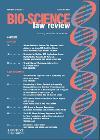Bio-Science Law Review - Volume 17 - Issue 2

WARNER LAMBERT v ACTAVIS: THE SUPREME COURT’S JUDGMENT ON SECOND MEDICAL USE CLAIMS
BRIAN WHITEHEAD AND STUART JACKSON Kempner and Partners
In a decision following a long series of judgments, the Supreme Court has finally held that Warner Lambert’s second medical use patent for the use of pregabalin in the treatment of neuropathic pain is invalid on grounds of insufficiency. The judges provided clarification as to the degree of evidence of efficacy to be included in the patent specification to satisfy the statutory requirement of sufficiency. The judges also opined, obiter, as to the correct test for infringement of a second medical use patent drafted in the so-called ‘Swiss form’. In this article the authors identify the principles decided which are of general applicability to second medical use patents containing Swiss form claims, and consider the applicability of the decision to patents containing second medical use product claims.
STRATEGIES FOR MULTIPLE SPC APPLICATIONS: ISSUES HIGHLIGHTED BY RECENT CJEU REFERRALS
ANDREW HUTCHINSON AND NICHOLAS FISCHER Simmons & Simmons LLP
In Novartis(Case 354–19), the Swedish court referred a question to the CJEU concerning the correct interpretation of Article 3(c) of the SPC Regulation. This case highlights how multiple SPC strategies have developed following the CJEU’s decision in Neurim, in particular based on new therapeutic indications for the same product. As well as Article 3(c), multiple SPC strategies based on the same product may confront issues under the other grounds for validity set out in Article 3 of the SPC Regulation. This article considers how such issues may arise in relation to Novartis, as well as multiple SPC strategies more generally.
‘GRANDFATHERING’ MARKETING AUTHORISATIONS IN A NO-DEAL BREXIT
PAUL ENGLAND Taylor Wessing
If the United Kingdom leaves the EU without a Withdrawal Agreement in place, this, amongst other issues for pharmaceutical companies, will have an impact on the current ways medicines are authorised in the United Kingdom. The government has published guidance on this issue and, in particular, the mechanism of ‘grandfathering’ marketing authorisations which were granted through the EMA’s decentralised procedure. This article examines what the guidance says about grandfathering and why it was necessary.
Case Comments
DALAFIL IN THE SUPREME COURT: A CAUTIONARY TALE AND A GO-TO GUIDE
PAUL ENGLAND Taylor Wessing
PATENTABILITY OF PLANTS OBTAINED BY ESSENTIALLY BIOLOGICAL PROCESSES: DECISION T 1063/18 AND THE SUBSEQUENT REFERRAL TO THE ENLARGED BOARD OF APPEAL BY THE PRESIDENT OF THE EPO (G3.19)
DR ALEANDER EICHNER AND DR MARTIN GRUND GRUND Intellectual Property
GSK AWARDED ARROW DECLARATION IN PATENT DISPUTE WITH VECTURA
CHRISTOPHER FREETH AND PAUL INMAN Gowling WLG (UK) LLP
GMP-ORPHAN v EUROPEAN COMMISSION
ALASDHAIR MCDONALD AND SHAYNA-RADHIKA PATEL CMS Cameron McKenna Nabarro Olswang LLP
THE CJEU ADOPTS DIFFERING APPROACHES TO SPCs FOR NEW FORMULATIONS AND FOR NEW INDICATIONS OF PREVIOUSLY AUTHORISED PRODUCTS
TREVOR COOK Partner, Wilmer Cutler Pickering Hale and Dorr LLP
BIOSIMILARS: STATUS UPDATE
SUZY MADAR AND SARAH-JANE FRYDMAN King & Wood Mallesons
